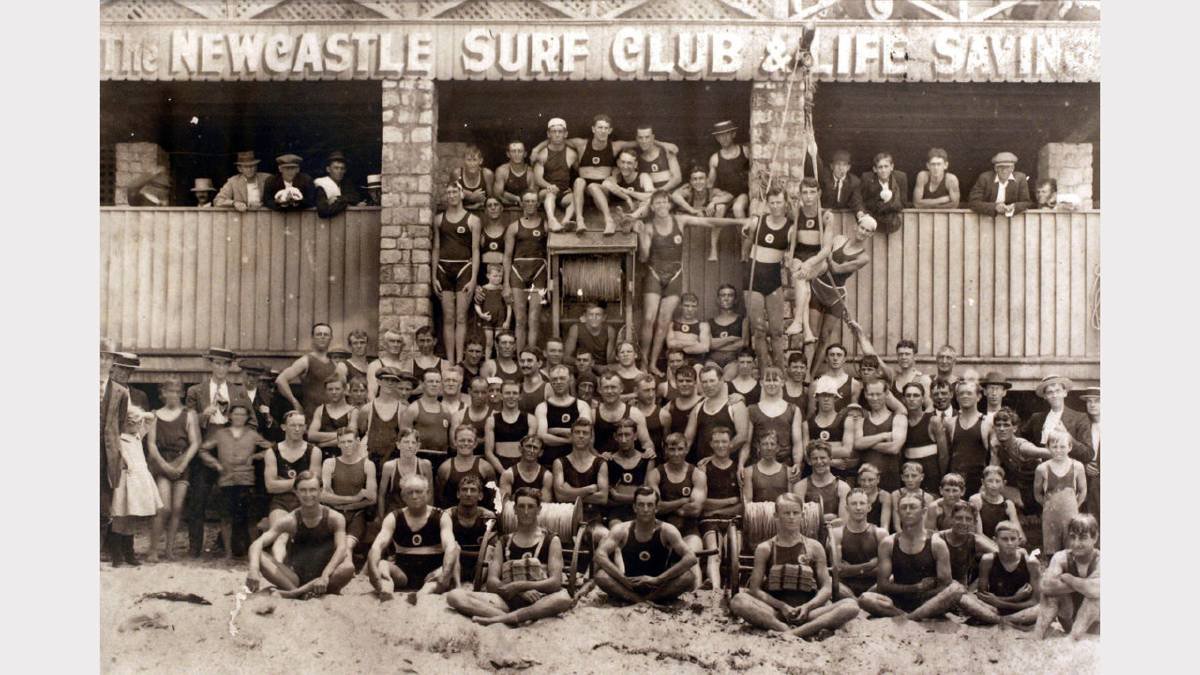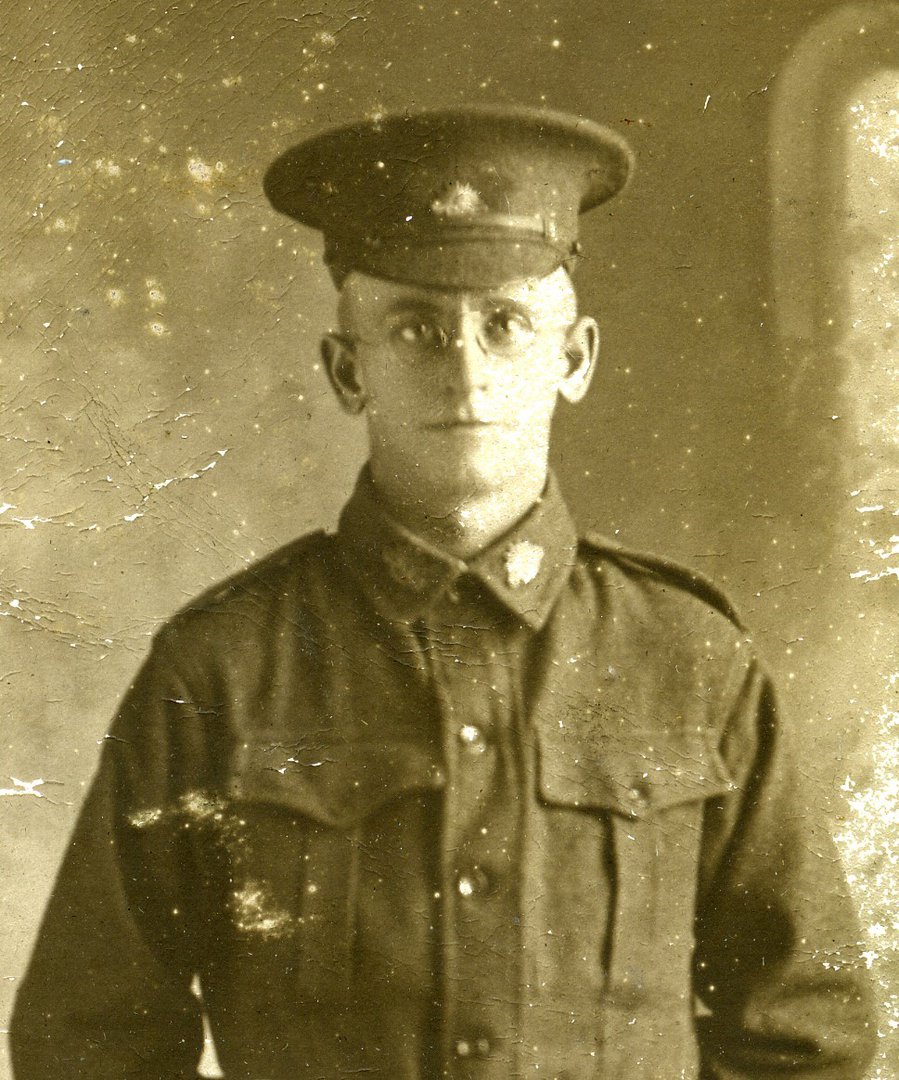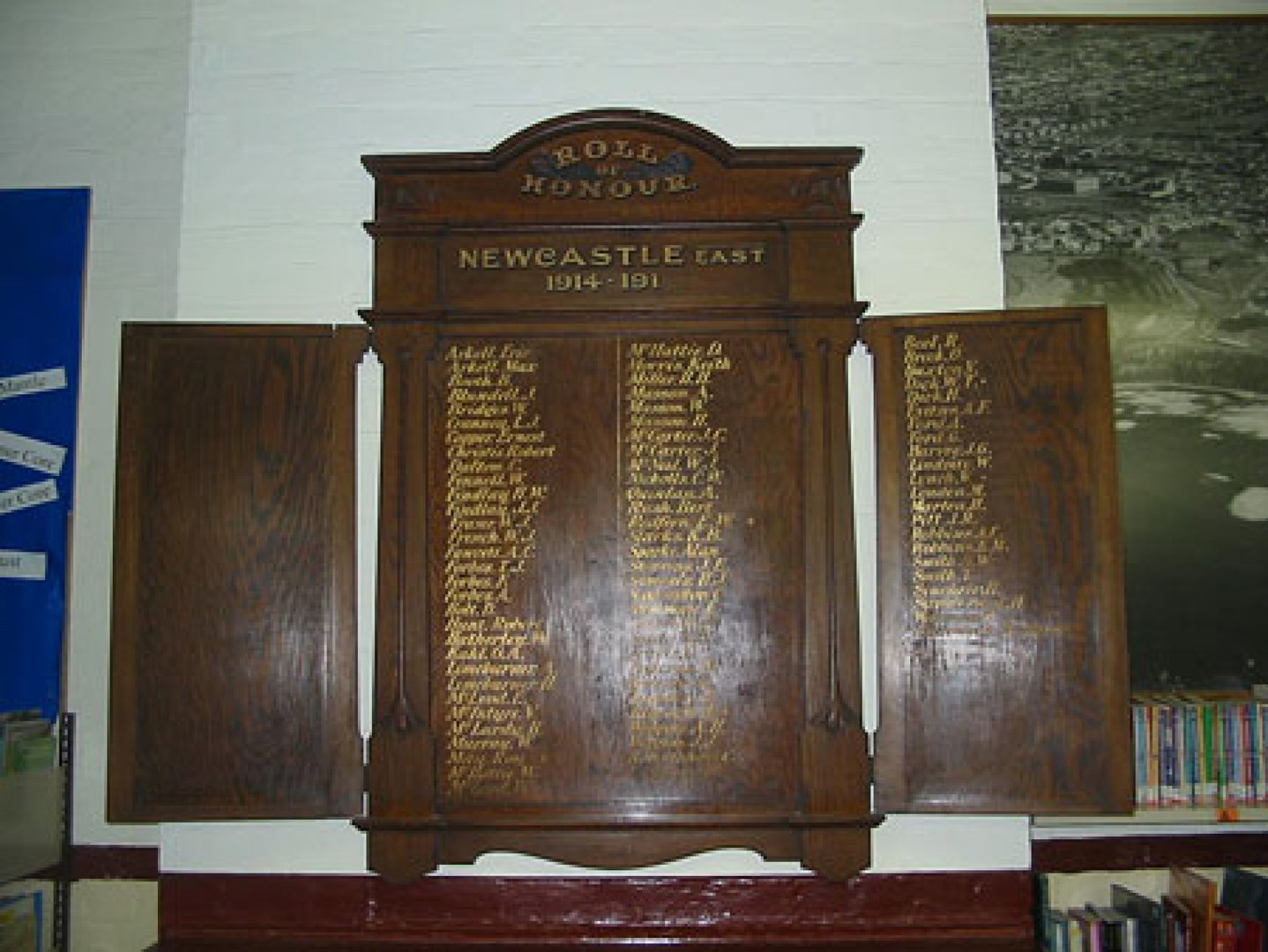William, Eric, Max, Douglas - the Arkell brothers of Newcastle – Surfers All
All four Arkell boys were brought up at 13 Scott St, Newcastle in New South Wales - a free standing two storey terrace house, almost on Newcastle Beach. This is a spectacular sandy cove surrounded by cliffs and the old Royal Newcastle Hospital sitting on the edge of the beach.
The Arkell family lived with their Irish-born maternal grandmother, Eliza Dick. Widowed in 1906, Eliza took on the care of the four boys and their sister, Gladys, after their mother, Bedelia, died in 1907. Their father, Charles Arkell, had died in 1901.
A series of drowning tragedies during the Christmas holiday period in 1907-1908 would very quickly lead to the formation of the region’s first ‘surf lifesaving’ club.
Source Chris Conrick, “The Northern District Surf Lifesaver” 1989
These young people would have lived on the beach, summer and winter, and all became involved in the surf club. The beach also had a huge children’s pool and sea baths at the north end. There were no surf boards back then; all lifesaving was done with swimming and rowing boats. Body surfing, swimming and boat races were all important parts of club life.

And then came the war – for Eric, just one year and 2 days
In 1915 the two middle boys, Eric (20) and Max (18), joined up in Liverpool on 18th July. They had consecutive regimental numbers (340 and 341, respectively) and both ended up in B Company, 30th Battalion. They sailed to Egypt in November, and finally on to France the month before Fromelles. On 20th July 1916, Eric was reported missing, later killed in action.

There are two eyewitness accounts of Eric’s death. The first is an extract from a letter by Lance Corporal Fred Ball, 351, 30th Battalion, to his parents and sisters in August 1916 giving an update on fellow Newcastle locals:
On the night of the charge Eric Arkell (a Brother to Max) was killed right out in an endeavour to cross No Mans Land with material. A party of us hopped the parapet together when one of Fritzs machine guns opened up on us and Eric had the misfortune to fall a victim. Later on Ted King (our Poet) had his leg broken with machine gun fire.
The second is part of a quote from yet another Newcastle local, Private Harry Samuels, 6665 Army Medical Corps, writing to a friend about his experiences in France:
Poor old Eric Arkell was killed in the charge just after he got over the parapet. He got it and fell, and that is the last any of us saw of him. It was absolute hell on earth for two days.
In addition, Private Phillip Hoare, 2068, 30th Battalion gave the following information as part of Red Cross enquiries in September 1917:
Arkell was in the same section and tent with me. At Croixblanc, South of Armentieres we had taken a German trench and we were carrying over stores to hold it, Arkell and me and others. About 10.30 at night Arkell was killed by shrapnel. I didnt see it but the chaps close to him told me the stretcher bearers had too much to do to bring in all the casualties. We only held the trench for eleven hours, and many were left out, many lying out still
Finally, a report appeared on the file of another soldier noting that Eric was seen in no-mans-land by Pte King and by his brother. “They were carrying material forward when he was hit. He sung out ‘They have got me’. He made his brother go on & when they came back they could not find him.”

More losses for the Arkell family
1918 - Max Arkell – Killed in action
Eric’s younger brother, Max, was killed in action on 28th August 1918. He is buried in Daours Communal Cemetery Extension in France and his story is also included on this website.

1918 - Granny Dick – died aged 73 years
After bringing up her orphaned grandchildren, Granny Dick died in June 1918. Fortunately perhaps, this was before grandson Max was killed in France:
“MODERN 'GRACE DARLING' DEATH OF MRS ELIZA DICK NEWCASTLE Saturday
After a long illness, Mrs. Eliza Dick (73), relict of the late Senior Sergeant Dick, of the Newcastle Water Police, died at her home in Scott Street, on Thursday night. On Boxing Day, 1863, deceased won the designation of ‘the Grace Darling of Australia' by rescuing a man and a boy from drowning in Sydney harbor. It was a heroic action. Mrs. Dick was nursing a baby at the Water Police Barracks on Goat Island, when, hearing cries for help, she put out in a small boat, and after a great struggle, effected a rescue, which was recognised by the Shipwrecked Fishermen and Mariners' Benevolent Society of England, and by the then Governor of New South Wales, Sir John Young, who presented her with a gold medal. Mrs Dick leaves two sons, Mr. W. T. Dick, M.L.C., and Mr. G. Dick, member of the Newcastle City Council, and three daughters.”
1919 - The youngest brother Douglas Arkell – shark attack
In January 1919, young Doug Arkell, captain of the surf club, was attacked by a shark:
SURF CLUB CAPTAIN - MAIMED FOR LIFE.
Douglas Arkell, captain of the Newcastle Surf Club and Life Saving Brigade, was surfing at the Newcastle beach on Friday afternoon last, when he was attacked by a shark estimated to be 14ft. long. He was quickly conveyed to the Newcastle Hospital, where it was found necessary to amputate his left leg above the knee.
This cuts short the career of a young man who was looked upon by many to be the world's champion swimmer within a few years. He was always well behaved, and was always a model companion. He did not smoke.
Visiting surfers have often expressed their admiration of the way in which he could shoot the breakers.
Douglas Arkell has saved many lives at Newcastle. This season he helped to save at least half a dozen people who had got into difficulties. He was the champion club swimmer in 1915-16 and 1917-18, and won innumerable prizes both in Newcastle and Sydney. At the time of the accident the was training for the carnival to be held at Manly this weekend, and he was in hopes of bringing back to the north the most important trophies.
He is only 19 years old. He lost his father and mother when quite young, and was reared by his grandmother, the late Mrs Dick, familiarly known as the "Grace Darling of Australia." Two brothers of Doug were killed at the front. William Arkell, also a prominent member of the Surf Club, is his only near-relative now.
Douglas survived his injury and went on to continue competitive club swimming. He maintained his connection with the surf lifesaving community for more than 40 years, serving as club president for some years before retiring as president in 1953. Douglas married and raised his family in Newcastle, where he died aged 63 in 1961.
Gladys and William – the other siblings left behind
William Arkell, the eldest son, worked as a shipping agent and maintained his involvement with the Newcastle surf club. He died unexpectedly in December 1926, aged 38 years. There appears to be no record that he ever married.
In 1921 Gladys Arkell (1890-1954) married Roy Elliot Read, and they had a son and daughter. It was amongst these descendants along with the descendants of the Arkells’ uncles that researchers found willing donors to help identify Eric. The search continues to find the appropriate donor to finally know where Eric is buried.